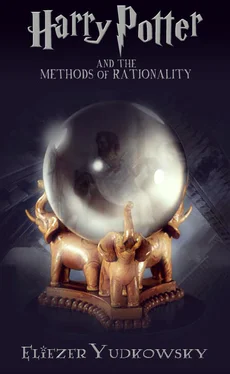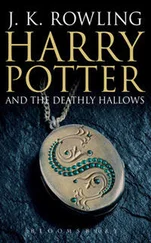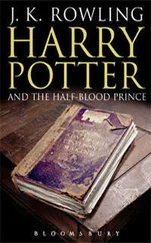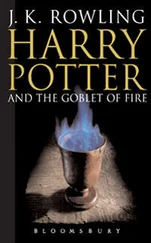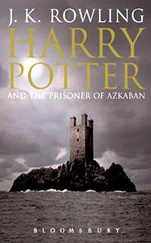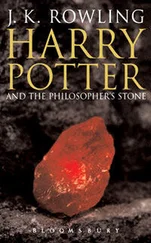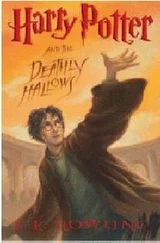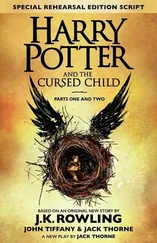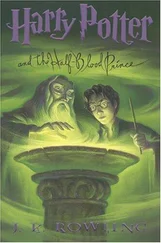"Now when it comes to something like being short or tall, there's a lot of places in the recipe that make little differences. So if a tall father marries a short mother, the child gets some pieces of paper saying 'tall' and some pieces of paper saying 'short', and usually the child ends up middle-sized. But not always. By luck, the child might get a lot of pieces saying 'tall', and not many papers saying 'short', and grow up pretty tall. You could have a tall father with five papers saying 'tall' and a tall mother with five papers saying 'tall' and by amazing luck the child gets all ten papers saying 'tall' and ends up taller than both of them. You see? Blood isn't a perfect fluid, it doesn't mix perfectly. Deoxyribonucleic acid is made up of lots of little pieces, like a glass of pebbles instead of a glass of water. That's why a child isn't always exactly in the middle of the parents."
Draco listened with his mouth open. How in Merlin's name had the Muggles figured all this out? They could see the recipe?
"Now," Harry Potter said, "suppose that, just like with tallness, there's lots of little places in the recipe where you can have a piece of paper that says 'magic' or 'not magic'. If you have enough pieces of paper saying 'magic' you're a wizard, if you have a lot of pieces of paper you're a powerful wizard, if you have too few you're a Muggle, and in between you're a Squib. Then, when two Squibs marry, most of the time the children should also be Squibs, but once in a while a child will get lucky and get most of the father's magic papers and most of the mother's magic papers, and be strong enough to be a wizard. But probably not a very powerful one. If you started out with a lot of powerful wizards and they married only each other, they would stay powerful. But if they started marrying Muggleborns who were just barely magical, or Squibs... you see? The blood wouldn't mix perfectly, it would be a glass of pebbles, not a glass of water, because that's just the way blood works. There would still be powerful wizards now and then, when they got a lot of magic papers by luck. But they wouldn't be as powerful as the most powerful wizards from earlier."
Draco nodded slowly. He'd never heard it explained that way before. There was a surprising beauty to how exactly it fit.
" But, " Harry said. "That's only one hypothesis. Suppose that instead there's only a single place in the recipe that makes you a wizard. Only one place where a piece of paper can say 'magic' or 'not magic'. And there are two copies of everything, always. So then there are only three possibilities. Both copies can say 'magic'. One copy can say 'magic' and one copy can say 'not magic'. Or both copies can say 'not magic'. Wizards, Squibs, and Muggles. Two copies and you can cast spells, one copy and you can still use potions or magic devices, and zero copies means you might even have trouble looking straight at magic. Muggleborns wouldn't really be born to Muggles, they would be born to two Squibs, two parents each with one magic copy who'd grown up in the Muggle world. Now imagine a witch marries a Squib. Each child will get one paper saying 'magic' from the mother, always, it doesn't matter which piece gets picked at random, both say 'magic'. But like flipping a coin, half the time the child will get a paper saying 'magic' from the father, and half the time the child will get the father's paper saying 'not magic'. When a witch marries a Squib, the result won't be a lot of weak wizarding children. Half the children will be wizards and witches just as powerful as their mother, and half the children will be Squibs. Because if there's just one place in the recipe that makes you a wizard, then magic isn't like a glass of pebbles that can mix. It's like a single magical pebble, a sorcerer's stone."
Harry arranged three pairs of papers side by side. On one pair he wrote 'magic' and 'magic'. On another pair he wrote 'magic' on the top paper only. And the third pair he left blank.
"In which case," Harry said, "either you have two stones or you don't. Either you're a wizard or not. Powerful wizards would get that way by studying harder and practicing more. And if wizards get inherently less powerful, not because of spells being lost but because people can't cast them... then maybe they're eating the wrong foods or something. But if it's gotten steadily worse over eight hundred years, then that could mean magic itself is fading out of the world."
Harry arranged another two pairs of papers side by side, and took out a quill. Soon each pair had one piece of paper saying 'magic' and the other paper blank.
"And that brings me to the prediction," said Harry. "What happens when two Squibs marry. Flip a coin twice. It can come up heads and heads, heads and tails, tails and heads, or tails and tails. So one quarter of the time you'll get two heads, one quarter of the time you'll get two tails, and half the time you'll get one heads and one tail. Same thing if two Squibs marry. One quarter of the children would come up magic and magic, and be wizards. One quarter would come up not-magic and not-magic, and be Muggles. The other half would be Squibs. It's a very old and very classic pattern. It was discovered by Gregor Mendel who is not forgotten, and it was the first hint ever uncovered for how the recipe worked. Anyone who knows anything about blood science would recognize that pattern in an instant. It wouldn't be exact, any more than if you flip a coin twice forty times you'll always get exactly ten pairs of two heads. But if it's seven or thirteen wizards out of forty children that'll be a strong indicator. That's the test I had you do. Now let's see your data."
And before Draco could even think, Harry Potter had taken the parchment out of Draco's hand.
Draco's throat was very dry.
Twenty-eight children.
He wasn't sure of the exact number but he was pretty sure around a fourth had been wizards.
"Six wizards out of twenty-eight children," Harry Potter said after a moment. "Well, that's that, then. And first-years were casting the same spells at the same power level eight centuries ago, too. Your test and my test both came out the same way."
There was a long silence in the classroom.
"What now?" Draco whispered.
He'd never been so terrified.
"It's not definite yet," said Harry Potter. "My experiment failed, remember? I need you to design another test, Draco."
"I, I..." Draco said. His voice was breaking. "I can't do this Harry, it's too much for me."
Harry's look was fierce. "Yes you can, because you have to. I thought about it myself, too, after I found out about the Interdict of Merlin. Draco, is there any way of observing the strength of magic directly? Some way that doesn't have anything to do with wizards' blood or the spells we learn?"
Draco's mind was just blank.
"Anything that affects magic affects wizards," said Harry. "But then we can't tell if it's the wizards or the magic. What does magic affect that isn't a wizard?"
"Magical creatures, obviously," said Draco without even thinking about it.
Harry Potter slowly smiled. "Draco, that's brilliant. "
It's the sort of dumb question you'd only ask in the first place if you'd been raised by Muggles.
Then the sickness in Draco's stomach got even worse as he realized what it would mean if magical creatures were getting weaker. They would know for certain then that magic was fading, and there was a part of Draco that was already sure that was exactly what they would find. He didn't want to see this, he didn't want to know...
Harry Potter was already halfway to the door. "Come on , Draco! There's a portrait not far from here, we'll just ask them to go get someone old and find out right away! We're cloaked, if someone sees us we can just run away! Let's go!"
Читать дальше
